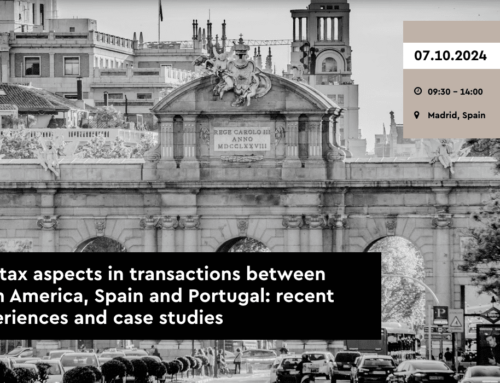The Supreme Court has recently ruled on the application of the exemption of dividends paid by Spanish entities to their parent companies in the European Union (EU) by virtue of the provisions of Article 14.1.h) of the Law on Non-Resident Income Tax (“LIRNR”).
The Court, in an appeal ruling, gives its position on the tax treatment that should be given to such dividends in the light of the judgments handed down by the Court of Justice of the European Union (“CJEU”) on 29 February 2019 (Cases C-116/16 and C-117/16), known as the “Danish cases”.
In its ruling, the Supreme Court analyses an issue of evidentiary nature, centred on who must prove that the parent company has been set up for valid economic reasons and on whom the consequences of not proving this fact must fall: the taxpayer or the Tax Administration.
In this respect, Article 14.1.h) of the LIRNR, which is the subject of controversy, includes an anti-abuse clause to prevent taxpayers from using fictitious companies or companies with no real activity outside Spain to which dividends are paid in order to apply the exemption. The provision establishes that “profits distributed by subsidiary companies resident in Spanish territory to their parent companies resident in other Member States of the European Union […]” shall be exempt.
However, the same provision also introduces a series of requirements to avoid abuses in the application of that exemption, namely that both companies be subject to and not exempt from any of the taxes levied on the profits of legal entities in the EU Member States, that the distribution of the profit not be the result of the liquidation of the subsidiary and that both companies take one of the forms provided for in the Annex to the Directive relating to the regime applicable to parent companies and subsidiaries of different Member States.
Thus, the Supreme Court, in order to carry out the stated analysis, breaks down the case law of the CJEU on the Parent-Subsidiary Directive, considering the criterion of the CJEU in its judgments of 7 September 2017 (case C-6/16 Eqiom) and 20 December 2017 (case C-504/16 Deister) to be fully in force. And in line with these judgments, as well as those relating to the Danish cases cited above, contrary to its previous case law, the Supreme Court concludes that the burden of proof of the abuse that rules out this exemption in the IRNR falls on the Tax Administration and not on the taxpayer.
That being said, it is also true that the aforementioned judgment, while clearly determining who bears the burden of proof in this matter, does not clarify or specify anything beyond what the CJEU determined on the relationship between the abuse and the beneficial owner.
At the time, the CJEU established a series of objective and subjective indications or circumstances regarding the existence of this abuse, concluding that, if the beneficial owner of the dividend resides outside the EU, it can be considered an abuse of Law. However, it is open to interpretation whether such abuse lies in the mere fact that the beneficial owner is located outside the EU, and thus the Tax Administration may refuse the exemption, without having to prove or give reasons for such abuse beyond the finding that the beneficial owner is established outside the EU.
Also, neither is the concept of “beneficial owner” clearly defined in European case law.
Therefore, although the Supreme Court determines that the burden of proof of the abuse that eliminates this exemption in the IRNR falls on the Tax Administration and not on the taxpayer, it seems to leave the concepts of “abuse” and “beneficial owner” open to interpretation, which may generate future controversies between Tax Authorities and taxpayers on these matters.








